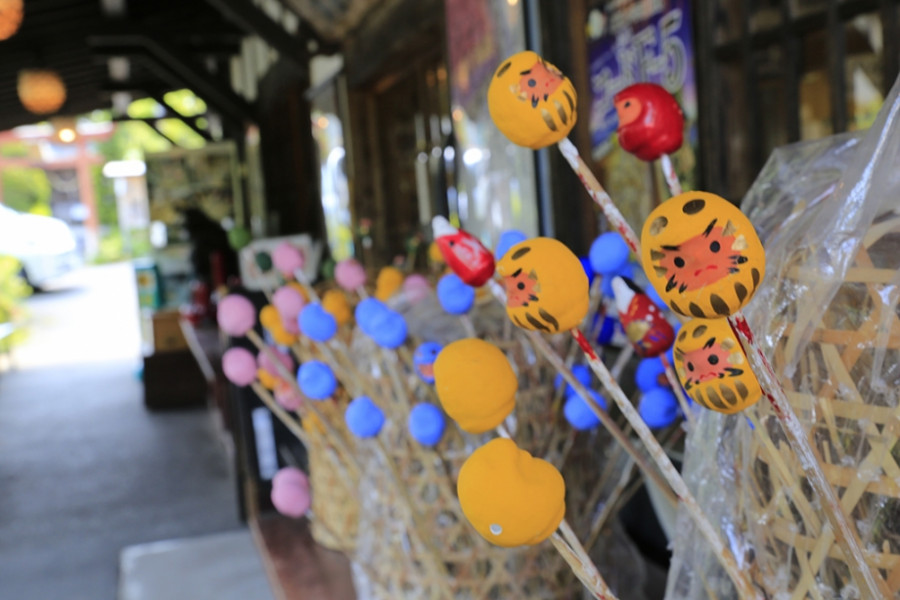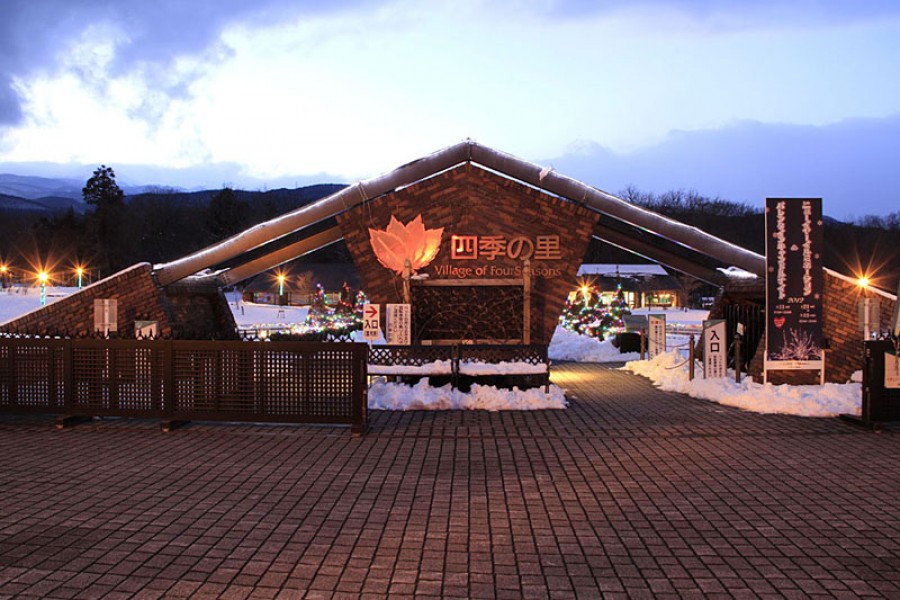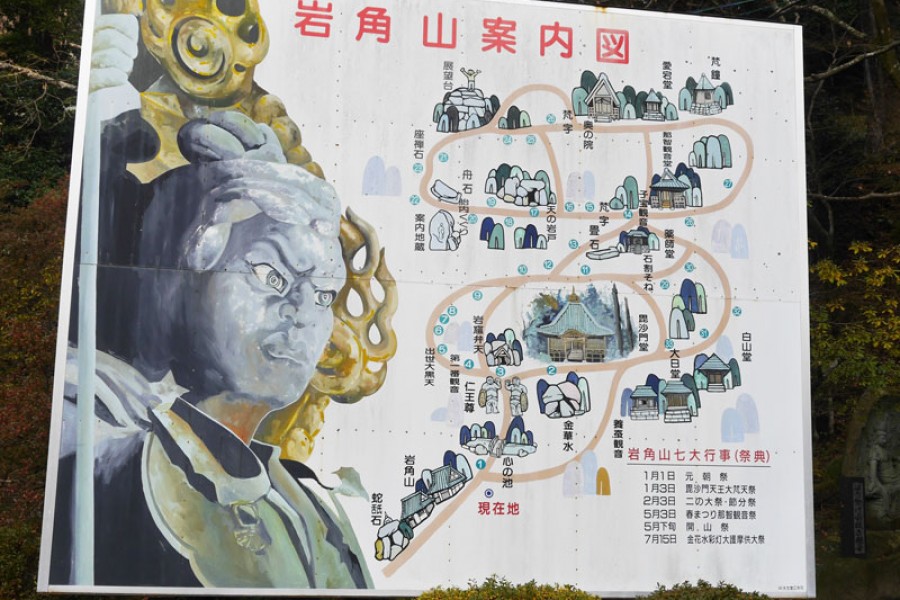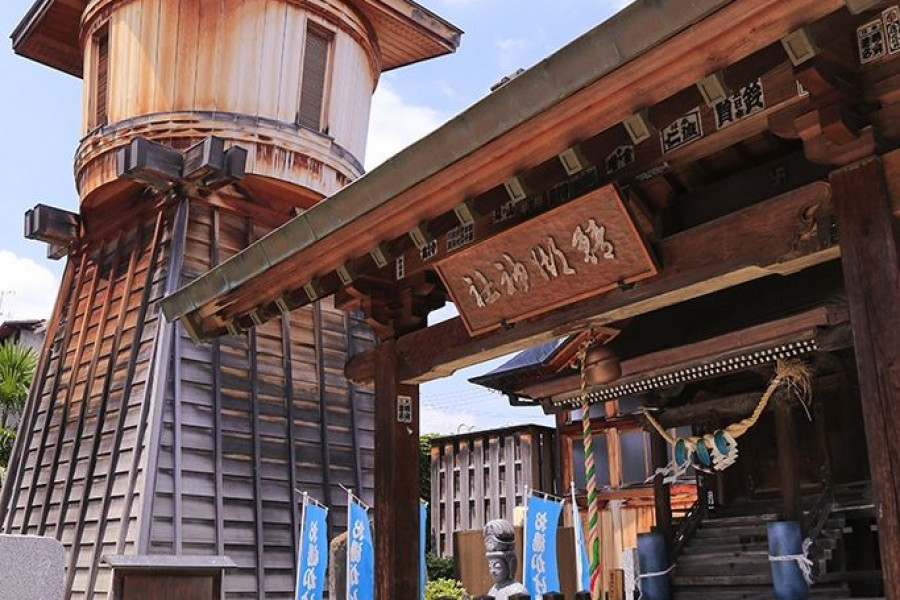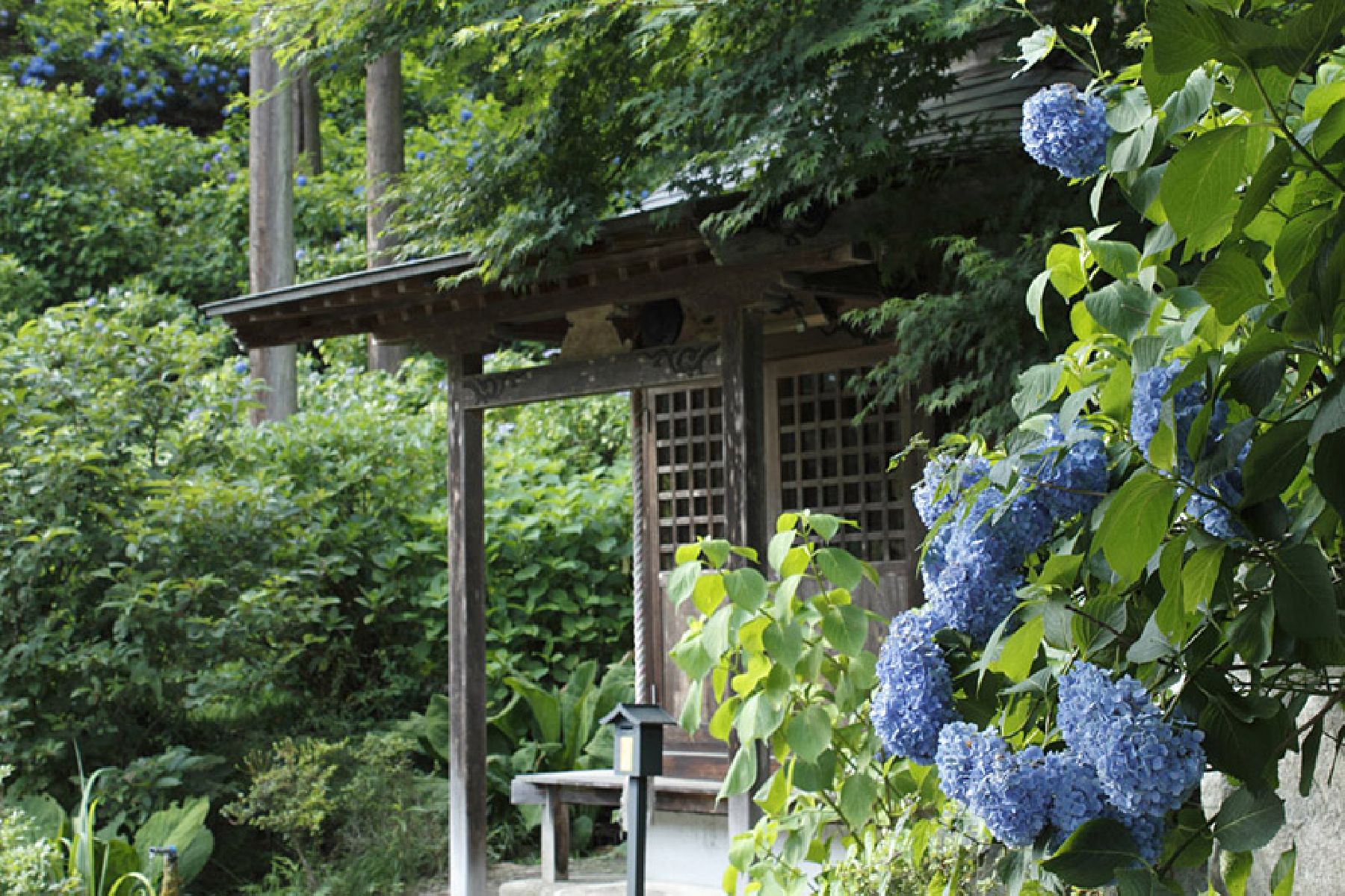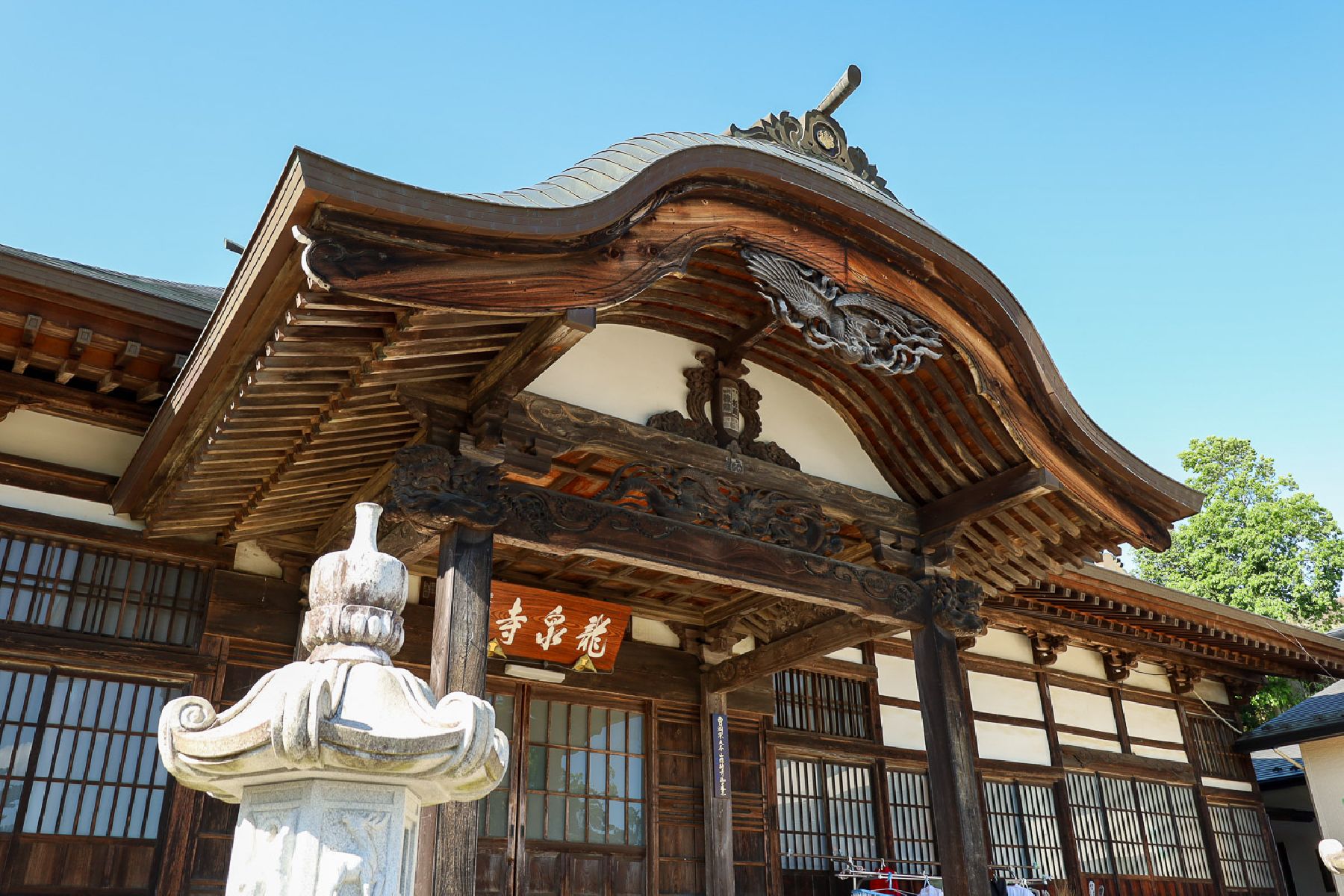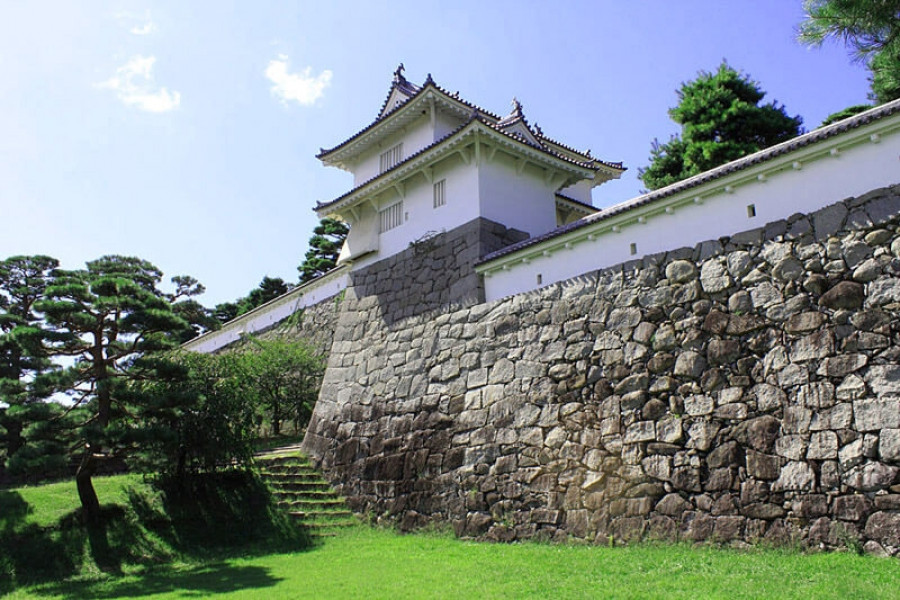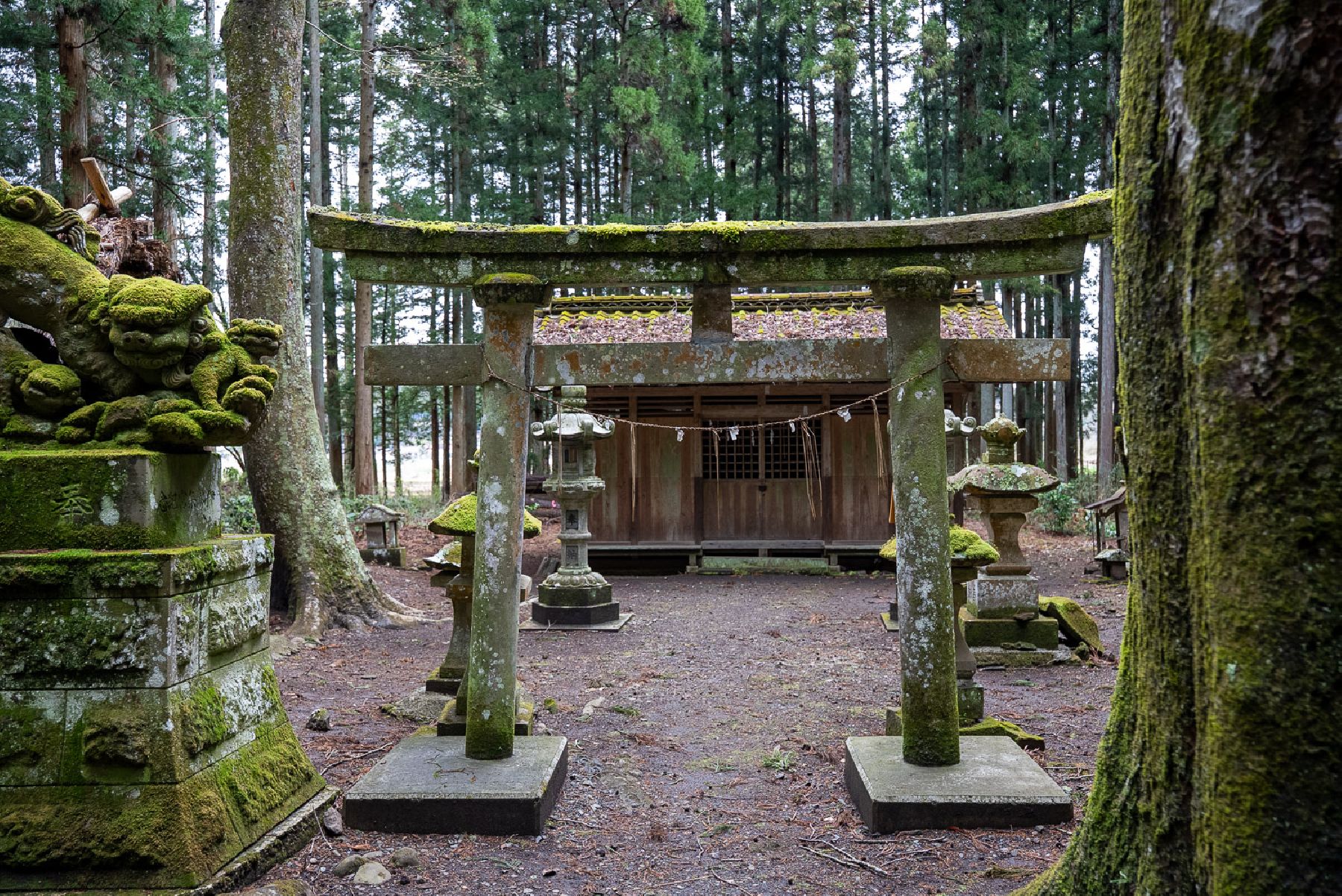
Isshikikanei Shrine
Tucked away in a cedar grove in Tanagura Town, the moss-covered rocks and statues of Isshikikanei Shrine make you feel like you’ve stepped into a Ghibli movie.The shrine is well-known in the area for its two koma-inu (lion statue) carvings. These were carved in 1934 by Kobayashi Wahei, a famous stonemason from the region responsible for dozens of statues on shrine grounds, especially in his birthplace of nearby Ishikawa Town. One of them is known as one of Kobayashi’s ‘Great Three Lion Statues’.
